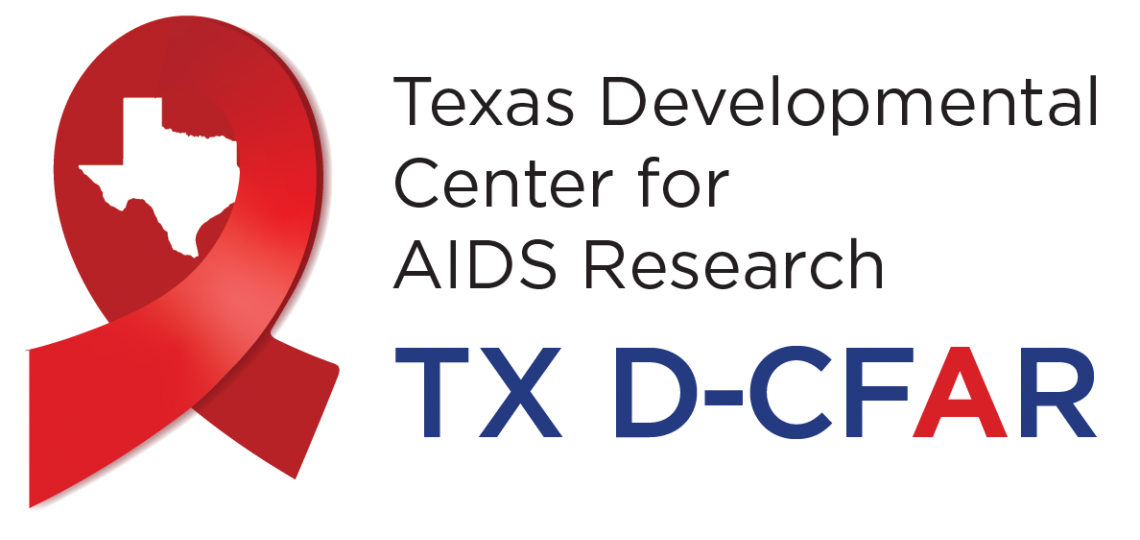
Texas D-CFAR Pilot Protocol (Detailed)
Leveraging video logs to enhance HIV PrEP access to Black women in Harris County
Project Summary:
This project will address social and structural of HIV for Black women by using an intersectional framework that brings together health communication through the lens of culture, race, and gender. Study findings will contribute towards EHE goals by potentially increasing PrEP access among HIV naïve Black women and will inform an NIH R01 proposal to develop and fully test the efficacy of a new vlog series intervention among Black women that will address PrEP knowledge, use, uptake, and adherence from the perspectives of both Black women and healthcare providers of Black women. Specifically, the vlogs will offer education on what PrEP is, how it works, and how HIV and STIs are transmitted to Black women, which we hypothesize will motivate Black women to seek and access PrEP resources through hyperlinks on social media posts that accompany vlogs.
Population:
Include 18,000 interactions with cisgender, Black women ages 18-45 years who use vlogs for information on a weekly basis and reside in Harris County.
Number of Sites:
Single site – UT Houston
Study Duration:
12 months
Subject Duration:
5-10 minutes
Background Information:
Black women account for 67% of new HIV diagnoses among all women in the South.1 Black women are 18.4 times more likely to be living with HIV in Houston than other women. Optimal progress toward End the HIV Epidemic (EHE) goals require strategies that will interrupt transmission pathways among women in HIV hotspot locations. This study can help to prevent new HIV cases by extending access to PrEP services among Black women. Local agencies with in-house pharmacies are now offering same-day PrEP to community members. By linking Black women to community partners who offer same day PrEP, we can decrease gaps between the PrEP clinic visit and PrEP uptake.
Although same-day PrEP can decrease barriers to PrEP, cultural and societal norms create obstacles to PrEP uptake that are not easy to circumvent. Gender inequities in relationship power often relate to behaviors that place women at risk for HIV and low PrEP uptake. PrEP overcomes this barrier and offers autonomy to Black women by removing partner control. Lack of access to and uptake of PrEP among heterosexual Black women highlights a gap that perpetuates HIV disparities. Reversing this trend among Black women will require innovative strategies that build on evidence-based methods and culturally relevant theoretical frameworks to increase awareness of and access to PrEP. Effective health communication can influence individual and community decisions to enhance the health of Black women.
PI Hill led and completed a pilot randomized controlled trial of an HIV prevention intervention of vlogs comparing two educational strategies, a storytelling strategy versus an interactive gaming strategy, to assess and compare changes in knowledge pre/post the intervention. Twenty-six cisgender heterosexual Black women ages 18-45 years who reported heterosexual sex within the last three months were enrolled. We utilized actors who reflected the target audience on the premises of race, gender, and colloquialism as the communication method in an effort to enhance cultural relevance with the intervention’s content. The vlog strategy was innovative, relatable, and motivating for Black women. To our knowledge, this is the first study to pilot test vlogging as an intervention strategy for HIV/STI prevention.
We hypothesize that by delivering a series of brief video-logs (vlogs) trailers in tandem with brief messages about PrEP on social media posts with hyperlinks to local PrEP resources, using a rigorously designed 90-day social media campaign, we will motivate cisgender Black women in Harris County to access local PrEP resources online.
Objectives:
The primary objective of this pilot proposal is to improve access to PrEP, with potential for motivating PrEP uptake, among cisgender Black women in Harris County.
Our team will explore two aims:
1) Develop and implement a rigorous social media campaign using culturally competent and relevant vlogs to motivate Black women to access PrEP in Harris County, and 2) Evaluate the performance of the social media campaign by assessing primary and secondary outcomes that include key performance indicators, specifically engagement with campaign, vlog reach to Black women (i.e. visualization), community engagement and quantity of vlog material consumed (i.e. amount of time spent viewing the vlog versus length of the vlog).
Funding and Collaborators:

Project Leadership:
 Mandy J. Hill, DrPH, MPH
Mandy J. Hill, DrPH, MPH
Mandy Hill, DrPH, MPH completed her doctoral studies in public health (Disease Control) at the University of TX Health, School of Public Health and her master studies in epidemiology at Tulane School of Public Health & Tropical Medicine. She directs public health research in the department.
Her research priority is creating a niche that merges public health and emergency medicine, with a concentration on HIV/AIDS, STI, and cervical cancer prevention. Her research fund of knowledge is rooted in several years of public health training complimented by years of public health and clinical research experience. She routinely collaborates with clinical and community researchers resulting in abstracts, poster presentations, manuscripts, and federal/non-federal grant submissions. Dr. Hill is designated as Principal Investigator & Full Professor for this project.

Diane Santa Maria, DrPH, MSN, RN, PHNA-BC, FSAHM, FAAN
Diane Santa Maria, DrPH, MSN is Dean and Associate Professor in the Department of Research at Cizik School of Nursing at the University of Texas Health Science Center at Houston (UTHealth Houston). She holds the Jane and Robert Cizik Distinguished Chair and Huffington Foundation Endowed Chair in Nursing Education Leadership. She is a former Visiting Professor at the University of California San Francisco Center for AIDS Prevention Studies and currently serves as a co-investigator and co-director of the Developmental Center for AIDS Research (D-CFAR) Mentoring Program and Substance Use Scientific Working Group. She has completed numerous studies among youth experiencing homelessness that address HIV and substance use prevention.
She is currently leading an NIH-funded R01 randomized controlled trial testing the efficacy of an ecological momentary-enhanced nurse case management HIV prevention and care coordination intervention among youth 16-25 experiencing homelessness and PrEP adherence among sexual and gender minority identifying youth. This study is also assessing the impact of COVID-19, uptake of vaccine, and prevalence of SARS-CoV-2 antibodies. She is also leading an NIH funded R34 study to co-adapt a mindfulness intervention to address emotion regulation, stress management, and impulse control among sheltered youth. She has expertise in the development, testing, and refinement of various HIV prevention interventions among high-risk communities, especially marginalized young people and those experiencing homelessness. Dr. Maria is designated as Co-Investigator & Full Professor for this project.
Upcoming Presentations:
Hill, M., Santa Maria, D., Coker, S., Sapp, S., and Sutton, T. Leveraging video logs to enhance HIV PrEP access to Black women in Harris County. APHA 2023 Annual Meeting and Expo., Nov. 12 – Nov. 15, 2023. Atlanta, GA. Poster presentation.

